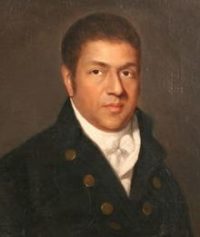
Eaves’ nephew, John H. Eaves, confirmed the news in a press released where he honored his uncle’s legacy and reminded the city that his own achievements were only made possible because of his uncle.
“It is with the heaviest of hearts that I bring to you news of an extremely personal loss for me,” John said in the statement. “Many of you know Reginald Eaves as a former Fulton County Commissioner and the first African-American to serve as public safety commissioner for the City of Atlanta. I knew him as my uncle, mentor and confidante. Today, I learned that after several major health setbacks in recent months, my Uncle Reginald has died.”
Eaves isn’t one of the names often found in history books but he has fought for the Black community and made sacrifices for the city of Atlanta in ways that very few would be willing to do.
Eaves, known by some as “Mr. Civil Rights,” faced death threats and public scrutiny all for the sake of helping the people who needed it the most. At one point, he received threats from four unidentified Atlanta police officers who demanded that he “leave the city permanently or suffer dire consequences.”
His legacy alone is enough to show that he wasn’t intimidated by the rogue cops.
When fellow Morehouse College student Maynard Jackson was elected as Atlanta’s first Black mayor, he ushered in Eaves as the city’s new political advisor and assistant. By the time 1974 came around, he was deemed the public safety commissioner—a title that would allow his work reforming policing in the city to take off.
“In his role as the cities ‘Top Cop,’ Eaves lacked traditional law enforcement experience but was able to reduce violent crime in the city’s black neighborhoods,” Rolling Out reported. “His actions, such as assigning foot patrols to high crime area and community policing, was ahead of its time and received coverage in Time magazine.”
But then there was the controversy that plagued his work for years and eventually led to him being fired by Jackson. In the country where police officers and other law enforcement officials are rarely fired for killing Black citizens and discriminating against Black cops, Eaves was criticized for allegedly showing “preferential treatment for Black officers in hiring and on the job.”

Either way, this wasn’t enough to stop Eaves from continuing on a mission to always serve as a leader and a fighter for the Black community. He would eventually become a member of the Fulton County Commission and use his new platform to help make a major push for emerging Black entrepreneurs and politicians.
But even as the city of Atlanta bids their local icon farewell, his legacy will live on, not only through the lasting impact of his work, but also through his nephew, who is now the Chairman of the Fulton County Board of Commissioners. Without Eaves paving the way, John says he may have never been in the position he is in today.
“My uncle is part of the reason I wanted to enter the realm of public service,” John concluded. “He cared about making the community around us a better place. He loved his family, he loved life and he loved the City of Atlanta, his adopted hometown.”


